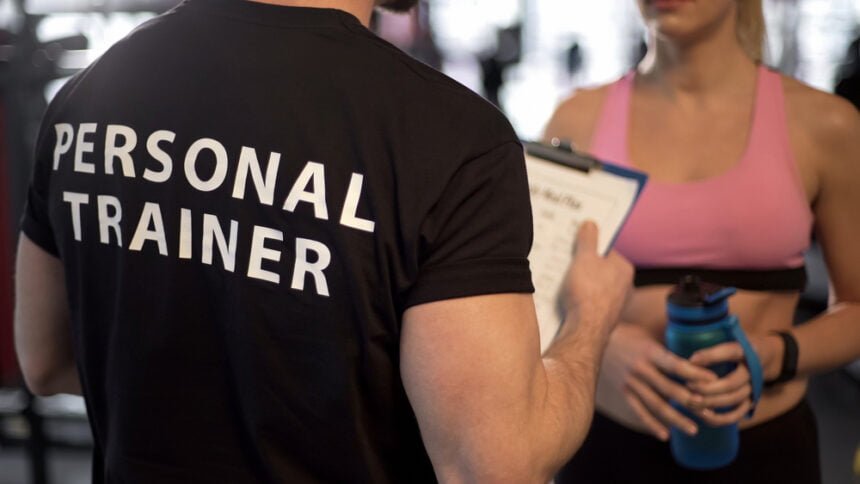Are you planning on starting a career in the fitness industry? This is the best time to do so, because the industry is projected to be worth $30 billion within the next couple of years.
However, starting a career as a fitness instructor was not gonna be easy. You are going to have to be smart about building your business.
Having a strong foundation is crucial when embarking on a career as a fitness coach. It sets the stage for a successful and fulfilling journey in the fitness industry. In this article, we will explore the essential steps you need to take to build that foundation and thrive as a fitness instructor.
Acquiring the Right Education and Certifications
The first step towards becoming a competent fitness instructor is to acquire the right education and certifications. Start by researching reputable fitness education programs that are recognized by industry standards. Look for programs that have accreditation and a high-quality curriculum.
To kick-start your career, pursuing basic certifications like ACE or NASM is recommended. These certifications are widely recognized and respected in the industry. You are not alone; if you have ever wondered between the two, what is the best certification for a personal trainer? Based on PTPiooner’s expert research, the ACE and NASM certifications are highly recommended. Additionally, it would benefit you more if you consider pursuing specialized certifications in areas of interest such as yoga or pilates.
Gaining Practical Experience
Practical experience is invaluable for honing your skills as a fitness instructor. Consider volunteering or interning at local gyms or fitness centers. By assisting experienced trainers and instructors, you can learn from their expertise and teaching methods.
Another effective way to gain practical experience is by teaching practice classes or conducting small group sessions. This allows you to develop confidence and refine your instructional skills. Remember to seek feedback from participants and make necessary improvements.
Building a Solid Knowledge Base
A solid knowledge base is essential for designing safe and effective workouts. Study anatomy and exercise physiology to understand how the body functions during exercise. This knowledge will empower you to create workouts that align with your client’s goals and limitations.
Additionally, learn about different training modalities and techniques. Familiarize yourself with strength training, cardio exercises, flexibility routines, and more. Expanding your repertoire, you can offer diverse workouts to cater to various client needs.
Developing Effective Communication Skills
As a fitness instructor, effective communication is key to ensuring your clients understand and perform exercises correctly. Practice delivering clear and concise instructions that are easy to comprehend. Use simple language and cues to help clients grasp exercise techniques.
In addition to instruction, focus on enhancing your interpersonal skills. Active listening and empathy toward your client’s needs are crucial. Building trust and rapport can create a supportive environment that motivates your clients to achieve their fitness goals.
Understanding Client Assessment and Goal Setting
You must understand how to conduct thorough client assessments to provide tailored fitness programs. Assess their current fitness levels, limitations, and any specific requirements they may have. This assessment will form the foundation for setting realistic and achievable goals.
Work closely with your clients to set goals aligning with their needs and preferences. Regularly monitor their progress and make adjustments as necessary. You can maximize their success and satisfaction by tailoring programs to their unique circumstances.
Embracing Continuous Learning and Professional Development
The fitness industry is ever-evolving, so staying updated on the latest trends and research is important. Read fitness publications and research studies to broaden your knowledge. Attend workshops and seminars to learn from industry experts and gain fresh insights.
Consider pursuing advanced certifications and specializations to differentiate yourself in the industry. Expanding your knowledge in specific areas of interest can attract clients seeking expertise in those domains.
Cultivating a Professional Image and Brand
Creating a professional image and brand is vital for establishing yourself as a fitness instructor. Develop a website or online portfolio to showcase your qualifications, experience, and testimonials from satisfied clients. Provide clear information about your services and contact details.
Leverage social media platforms to build your brand and market your services. Share valuable fitness content and tips to demonstrate your expertise. Engage with clients and potential clients online, fostering a sense of community and trust.
Networking and Collaborating
Building connections within the fitness industry can open doors to opportunities and collaborations. Attend industry events and conferences to meet like-minded professionals. Participate in fitness communities and forums to engage in discussions and share knowledge.
Consider collaborating with other professionals or businesses to expand your reach and client base. Joint ventures and referral programs can be mutually beneficial, allowing you to tap into new markets and attract clients through partnerships.
Conclusion
Building a strong foundation is the key to a successful career as a fitness instructor. Invest in education, gain practical experience, and continuously develop your professional skills. Embrace continuous learning and deliver excellent service to your clients. By following these essential steps, you’ll be well-equipped to positively impact the fitness industry and help others achieve their health and wellness goals.










